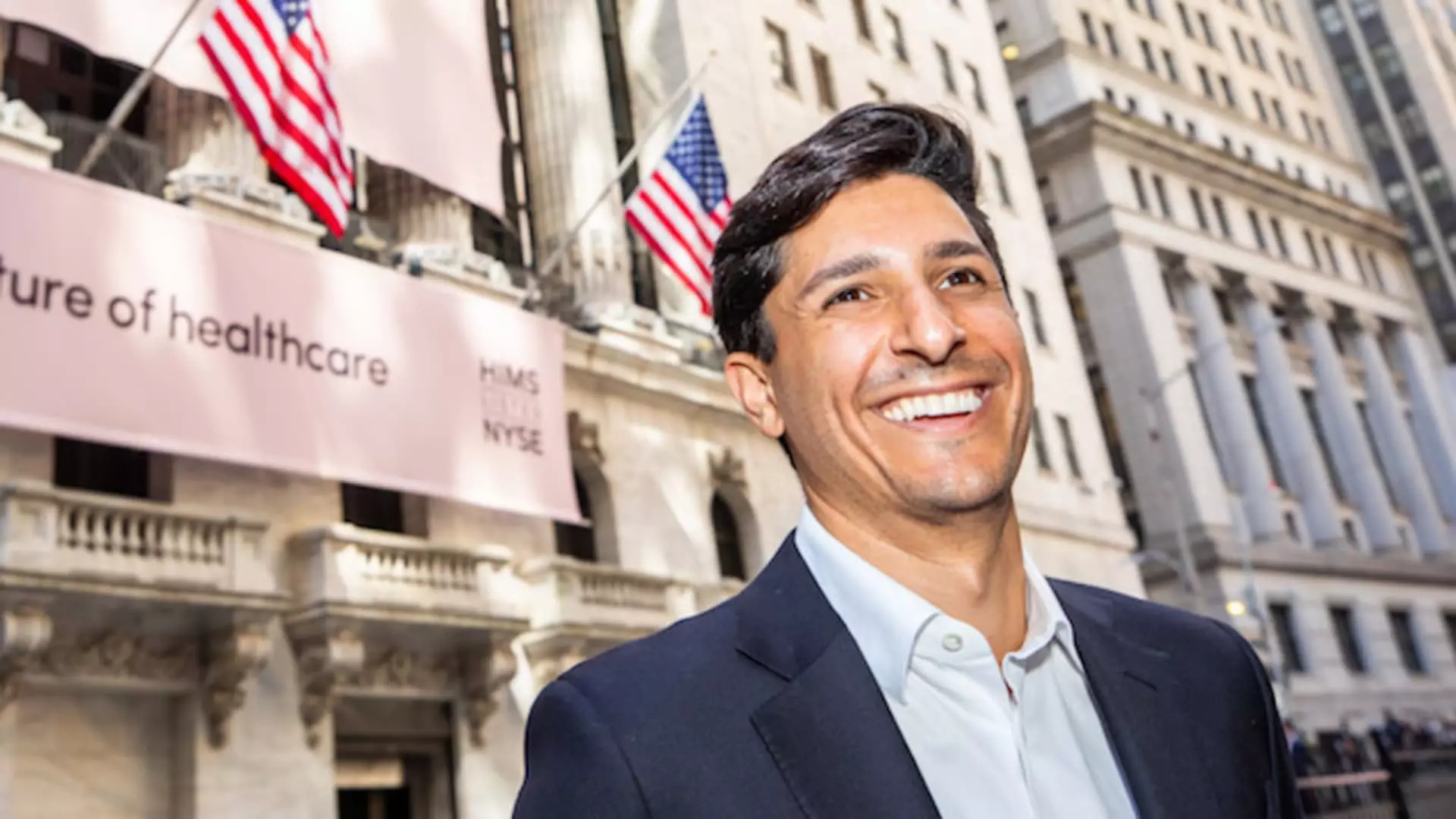In the complex interplay between politics and business, few developments attract as much attention as corporate donations to political campaigns or inaugural funds. Recently, Hims & Hers Health made headlines by contributing $1 million to President-elect Donald Trump’s inauguration fund, a strategic move that aligns the telehealth company with the incoming administration, known for its ambition to tackle America’s healthcare challenges. While the donation might appear straightforward on the surface, it unravels deeper implications regarding corporate influence in healthcare policy and the broader societal impact of their offerings.
Hims & Hers is among several tech companies that have financially backed Trump’s inaugural efforts, including notable names like OpenAI and Apple. This trend reflects a growing trend within the tech and health sectors, where firms aim to forge strong ties with governmental leaders. Such contributions can be interpreted as both a goodwill gesture and a proactive strategy to ensure that their interests are represented in policy discussions. In a sector as heavily regulated as healthcare, the backing of a powerful administration can have far-reaching effects, particularly for companies offering direct-to-consumer healthcare solutions.
As the healthcare landscape continues its evolution through the introduction of new treatments and technologies, companies like Hims & Hers are positioned at the forefront. Their success stems primarily from innovative approaches to significant health issues—most notably, weight loss treatments, which became pivotal to their brand identity. By embracing telehealth and making treatments accessible online, Hims & Hers taps into the growing consumer demand for convenience and affordability in healthcare solutions.
The company’s weight loss program, particularly its use of compounded semaglutide, represents both a breakthrough and a potential point of contention. Semaglutide, already popularized through well-known pharmaceuticals like Ozempic and Wegovy, is now being offered in a more affordable compounded form. This decision not only indicates responsiveness to market needs but also highlights the challenges and intricacies of healthcare access in the United States. With the standard treatments out of reach for many due to high costs—often exceeding $1,000 monthly without insurance—compounded alternatives suggest a viable path to more economical healthcare solutions.
However, the acceptance and future of these compounded treatments are steeped in uncertainty, particularly given the mixed reviews from influential figures in Trump’s cabinet. With voices like Robert F. Kennedy Jr. advocating for lifestyle changes over medication, it raises the question of how the new administration will ultimately approach obesity and related health issues. Dr. Marty Makary, Trump’s prospective FDA head, has a background tied to the telehealth industry, which complicates the narrative further. Will there be support for streamlined access to these treatments, or will regulatory hurdles stifle innovation in the name of traditional health practices?
The actions of Hims & Hers don’t exist in isolation; they are indicative of a larger trend where the alignment of corporate interests with government policy can shape the future health landscape. Elon Musk’s support for low-cost GLP-1 medications underscores a burgeoning movement toward making advanced pharmaceuticals more accessible to the public—an ambition that resonates with American values around healthcare equity.
Yet, the potential consequences of such close ties between corporations and political administrations should not be underestimated. While donations may pave the way for favorable policies, they also risk prioritizing profit over public welfare. Transparency and accountability must be at the forefront as these companies work alongside politicians who hold the reins of health policy, ensuring that the rapidly advancing field of telehealth remains focused on holistic and sustainable health for all Americans.
Hims & Hers’ substantial donation exemplifies a significant merging of corporate interests with political strategy, particularly in the health sector. As the new administration takes shape, the company’s voice will be crucial in discussions around the future of healthcare in America. Whether this partnership fosters innovative solutions or merely serves corporate profit motives remains to be seen. The unfolding narrative of healthcare policy will depend heavily on both political will and the accountability of corporations operating within the system, all while millions of Americans seek accessible and effective healthcare solutions.


Leave a Reply
You must be logged in to post a comment.